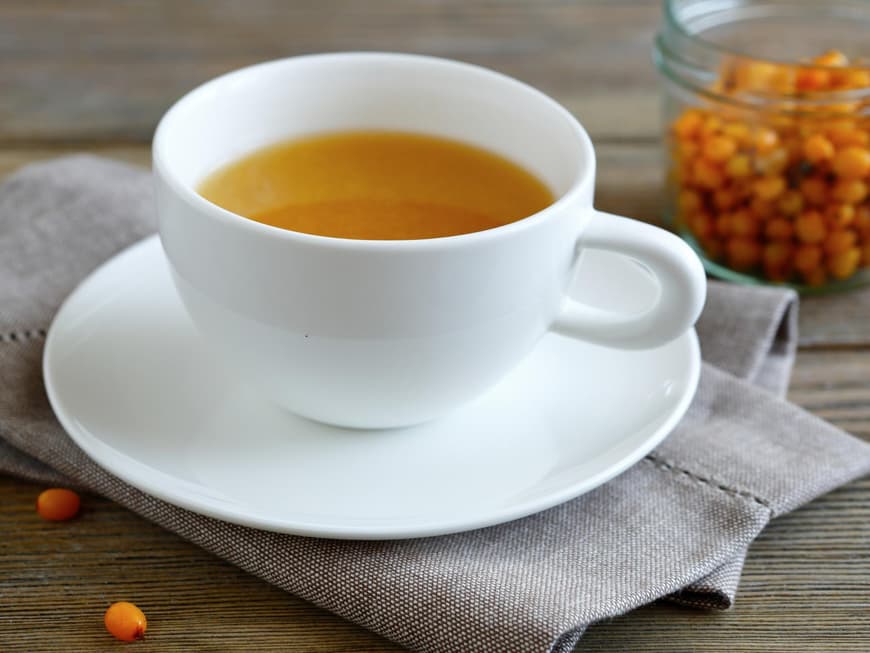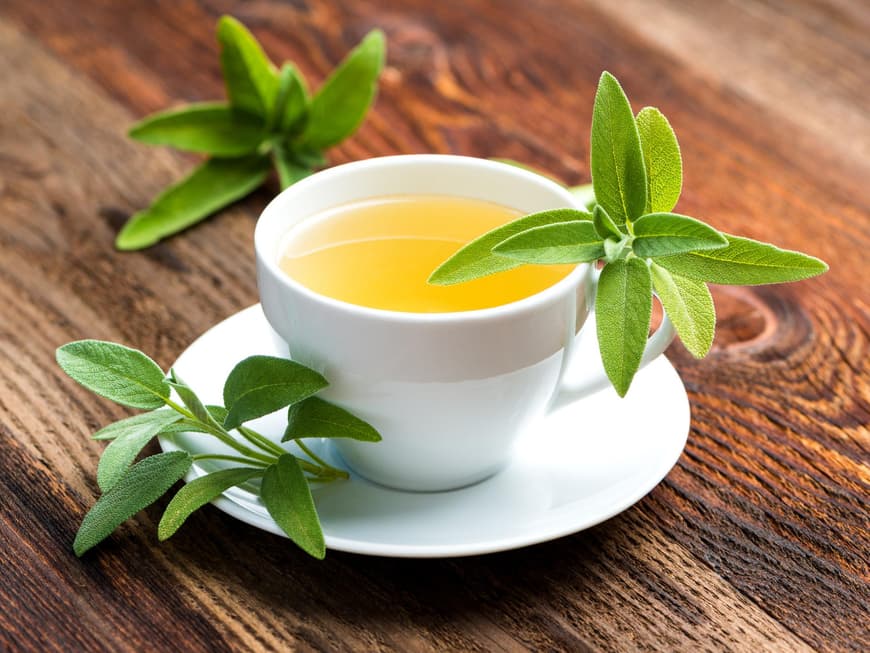8 soothing teas for colds
The cold season is starting again - it's good to know which teas you can use to treat yourself when the first symptoms appear.
1. ginger tea for colds: anti-inflammatory
Ginger tea is one of the favorites among natural remedies for colds. The tuber has an anti-inflammatory effect and strengthens the immune system.
Preparation: Peel and slice a fresh ginger root, scald with hot water and leave to infuse for 10 minutes. Ginger tea for colds acts like natural ASA.
Tip: Add a little honey, which also has an anti-inflammatory effect.
By the way, you can find a pretty teapot with an integrated tea strainer here >>
2. elderflowers have a diaphoretic effect
The essential oils in elderflower have an antipyretic and diaphoretic effect. These active ingredients also increase mucus production, which helps with coughing. It is best to drink it one hour before going to bed.
Preparation: Pour 200 ml of hot water over about two teaspoons of elderflower and leave to infuse for 10 minutes.
3. real sage soothes the urge to cough
There are over 500 varieties of sage, but only the real sage (pharmacy) is used in medicine. The ingredients kill bacteria, relieve coughs and soothe irritated mucous membranes. Sage tea can also be used cold to gargle for sore throats or tonsillitis.
Preparation: Pour hot water over about two teaspoons of dried sage leaves and leave to infuse for about 10 minutes. Sweeten with honey as required.
4. rose hips are real vitamin bombs
Rosehip tea is made from the peel of the fruit and contains five times as much vitamin C as a lemon. The tea helps with colds, but also has a preventative effect.
Preparation: Pour boiling water over one to two teaspoons of rosehips (washed and without stems) and leave to infuse for 10 minutes.
5. sea buckthorn strengthens the immune system
The orange-colored fruit is also known as the "lemon of the north" because it contains an extremely high amount of vitamin C, as well as valuable carotenoids, B vitamins, vitamin E and K. Sea buckthorn strengthens the immune system, has an anti-inflammatory effect and helps you to get over a cold quickly.
Preparation: Pour boiling water over two teaspoons of sea buckthorn berries and leave to infuse for around 6-8 minutes.
6. lime blossom dissolves mucus
The tea helps with colds - and has been used to treat them for centuries: it has a diaphoretic, expectorant and pain-relieving effect. Lime blossom also relieves mild stress and helps you fall asleep and stay asleep.
Preparation: Pour 250 ml of boiling water over up to two teaspoons of fresh lime blossom or one teaspoon of dried blossom and leave to infuse for around ten minutes.
7. thyme against inflammation of the mouth and throat
The herb has fungicidal and bactericidal properties, which is why it is suitable for combating fungal diseases and inflammations in the mouth and throat. These include tonsillitis and gingivitis.
Preparation: You can use dried thyme leaves to make thyme tea (1 teaspoon is sufficient), but you can also use the leaves from fresh bushes (3 to 4 teaspoons). Boil the leaves in a quarter of a liter of water and leave to infuse for 7-10 minutes. Drink several cups throughout the day.
8. peppermint tea relieves cold symptoms
Peppermint has antiviral, antimicrobial and diuretic properties, which are mainly attributed to the essential oil in the leaves. This mainly contains menthol as well as menthone and menthyl acetate in lower concentrations. Flavonoids and tannins such as rosmarinic acid are other important ingredients. Peppermint tea helps with inflammation of the oral mucosa and can also help with existing or impending bladder infections due to its diuretic effect.
Preparation: Pour 150 ml of hot, but not boiling water over fresh or dried leaves (1.5 to 3 grams = 1 to 2 tablespoons). Cover the infusion, leave to infuse for five to ten minutes and strain. Enjoy up to three cups of peppermint tea throughout the day. The daily dose of three to six grams should not be exceeded.
You can get a complete tea set with Amazon best ratings here!
Tea for colds: what you need to bear in mind
If you prepare a tea for a cold, you should never drink it too hot. Otherwise it could damage your vocal chords and possibly even lead to hoarseness or even make it worse. You should also be aware that herbal teas are natural home remedies that merely support you during an illness. They work differently for each person, more for some and less for others. So make sure you take the right dosage and daily amount. If you are still not feeling better after a week or if your symptoms are even getting worse, now is the time to see your GP.
Editor's note: This article contains, among other things, product recommendations. We are not influenced by third parties when selecting the products. For referrals via our +affiliate links+, we receive a commission from the relevant service provider/online store when a purchase or referral is made, which enables us to continue offering independent journalism.









